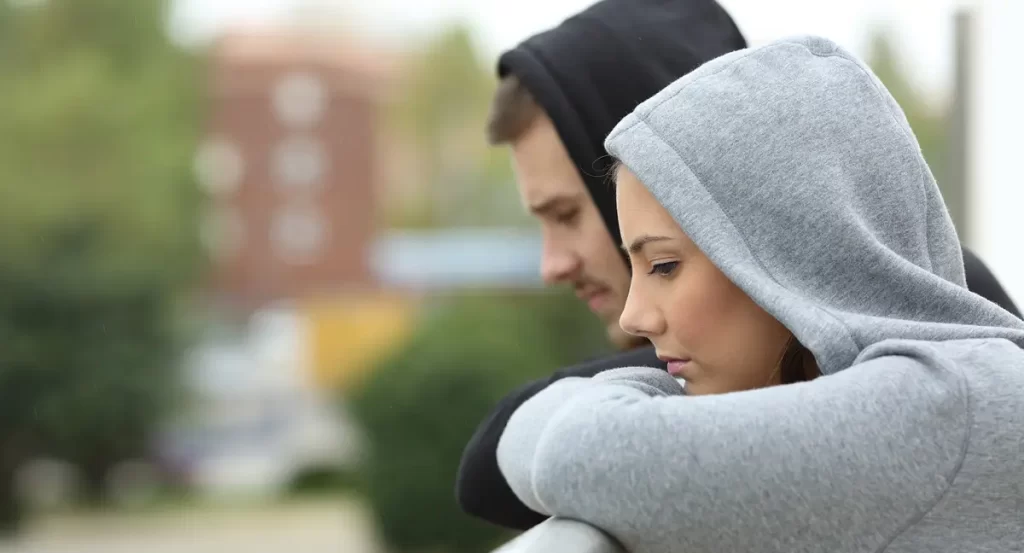5 Ways to Help Someone With Drug Addiction

Substance use disorders exist on a continuum, with the least severe being a substance misuse problem and the most severe most commonly known as a substance use disorder. Substance use impacts more than 23 million people in the United States directly, and if you include the indirect impact that number can skyrocket to over 60 million. What this means is that you more than likely know someone who is currently struggling with an addiction, and at some point will need help to get the medical care that they need—knowing what you can do then is an important part of the process.
1. You Can’t Fix the Problem Directly
Unless you are a licensed mental health professional, you should never try to fix your friend or loved one’s substance use problem. According to the National Institute on Drug Abuse (NIDA), addictions are complex and chronic diseases that require medical intervention to overcome. You wouldn’t try to cure a person’s cancer or diabetes, and you shouldn’t hope to cure their addiction either. The safety of your friend is not the only reason this is important, however, the potential guilt that can overcome you if you fail in “getting them better” can be hard to cope with. No matter what happens, you are never responsible for the outcome and with a disease like addiction that impacts so many parts of our lives, that is important to understand.
2. Identifying the Issue
Figuring out whether a substance use problem is mild, moderate, or severe (e.g. an addiction) should be the first step to getting someone help. The Substance Abuse and Mental Health Services Administration (SAMHSA) recommends finding a qualified health professional to administer S-BIRT to do just that. S-BIRT, or Screening, Brief Intervention, and Referral to Treatment, is a set of tools used to identify and assess problematic substance use, prevention mild substance use issues from becoming more severe, and to refer to substance use disorder treatment when necessary. It can be easy to self-diagnose or convince ourselves that substance use issues are either less of an issue than they seem or more of an issue in some cases. Seeking out the help of a trained and qualified professional should be your first course of action. Often, if there is an issue identified, the administering professional will help guide you and your loved one through the rest of the process, making it much simpler.
Are you or a loved one struggling with addiction?
Our Recovery Advocates are available 24/7 to help.
3. Talking About the Problem
In many cases, simply identifying the problem and having the advice of a medical professional to seek treatment, is not enough. Your friend or loved one may be worried about the impact going to treatment will have on their life (e.g. employment, relationships, etc.). While you should never force someone into treatment, you can play an important role in talking them through these concerns. According to NIDA, most employers, friends, and loved ones will be supportive of anyone attempting to get help for their addiction—however, this may not always be the case. Assuring your friend or loved one at this point that there are many privacy laws that protect them if they decide to seek help is a good idea at this point. Additionally, you should be supportive of their potential choice to seek help, showing them firsthand that the important people in their life will always be there.
4. Intervention
An intervention is defined by the National Council on Alcoholism and Drug Dependence as a professionally directed education process resulting in a face-to-face meeting of family members and friends of the person in trouble with drugs and alcohol. Consulting an addiction professional can help you organize an effective intervention. An interventionist can guide you and your family through the initial recovery process and advocate on your loved one’s behalf at a treatment facility. Expressing to your loved one how much they mean to you, encouraging them to get help, and sticking to your bottom line can be healing for both of you. It can also encourage positive change.
5. Learning More About Treatment Options
The more you know about addiction and the treatment options that exist for the disease, the more help you can be to your friend or loved one that is struggling. It is fine to contact treatment professionals or centers in your area or to reach out to the Health and Human Services national helpline at 1-800-662-HELP (4357) to learn more. The more you know, the better equipped you are to support your friend or loved one.
As a friend or loved one, you can play an important role in helping someone get the support they need to overcome their substance use disorder. You should never think that you can solve the problem alone, and you should always seek out the support and guidance of a professional. Recovery from addiction is a process, not a destination. Call The Recovery Village Ridgefield today to speak to a representative about our treatment programs.




